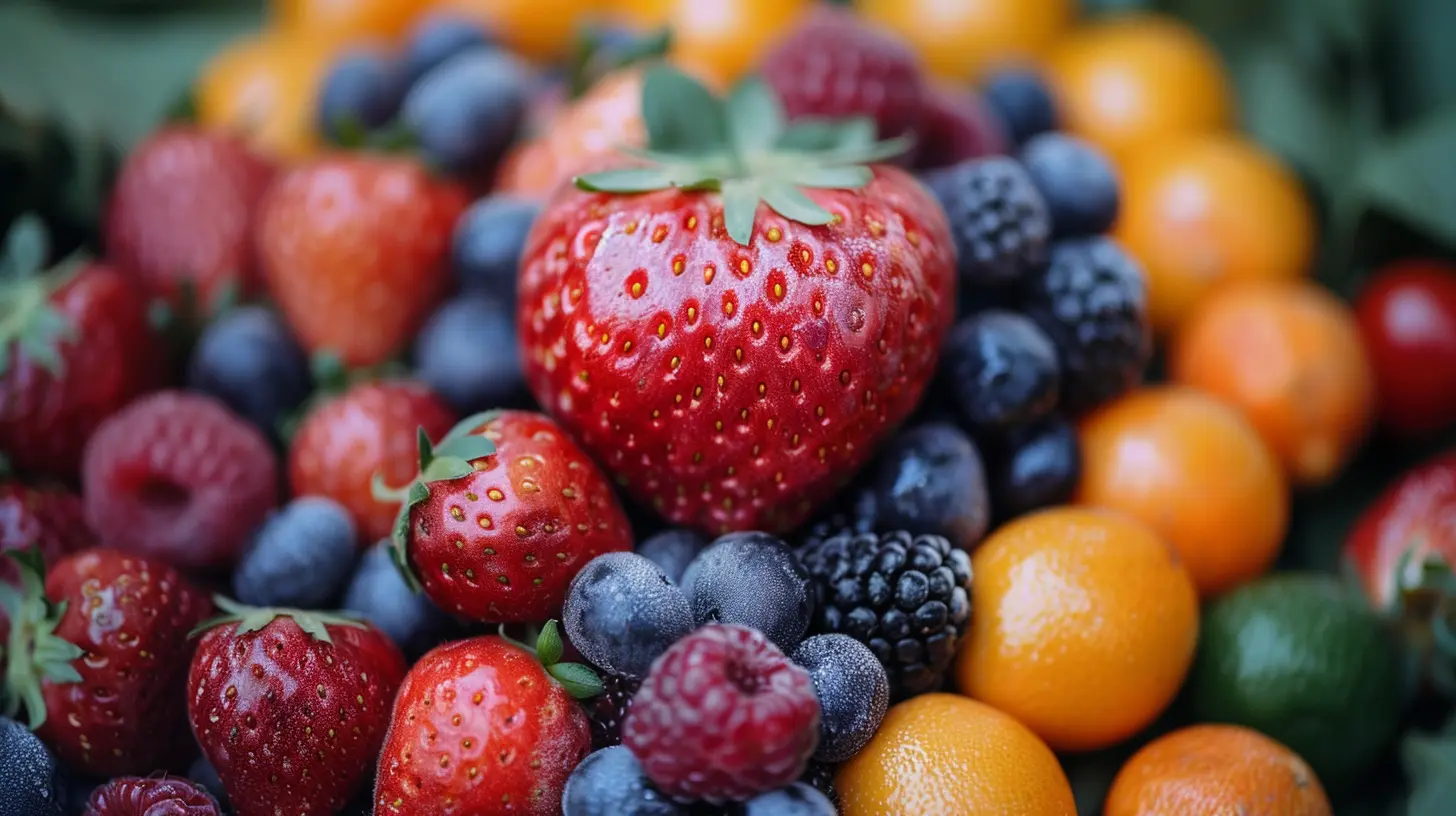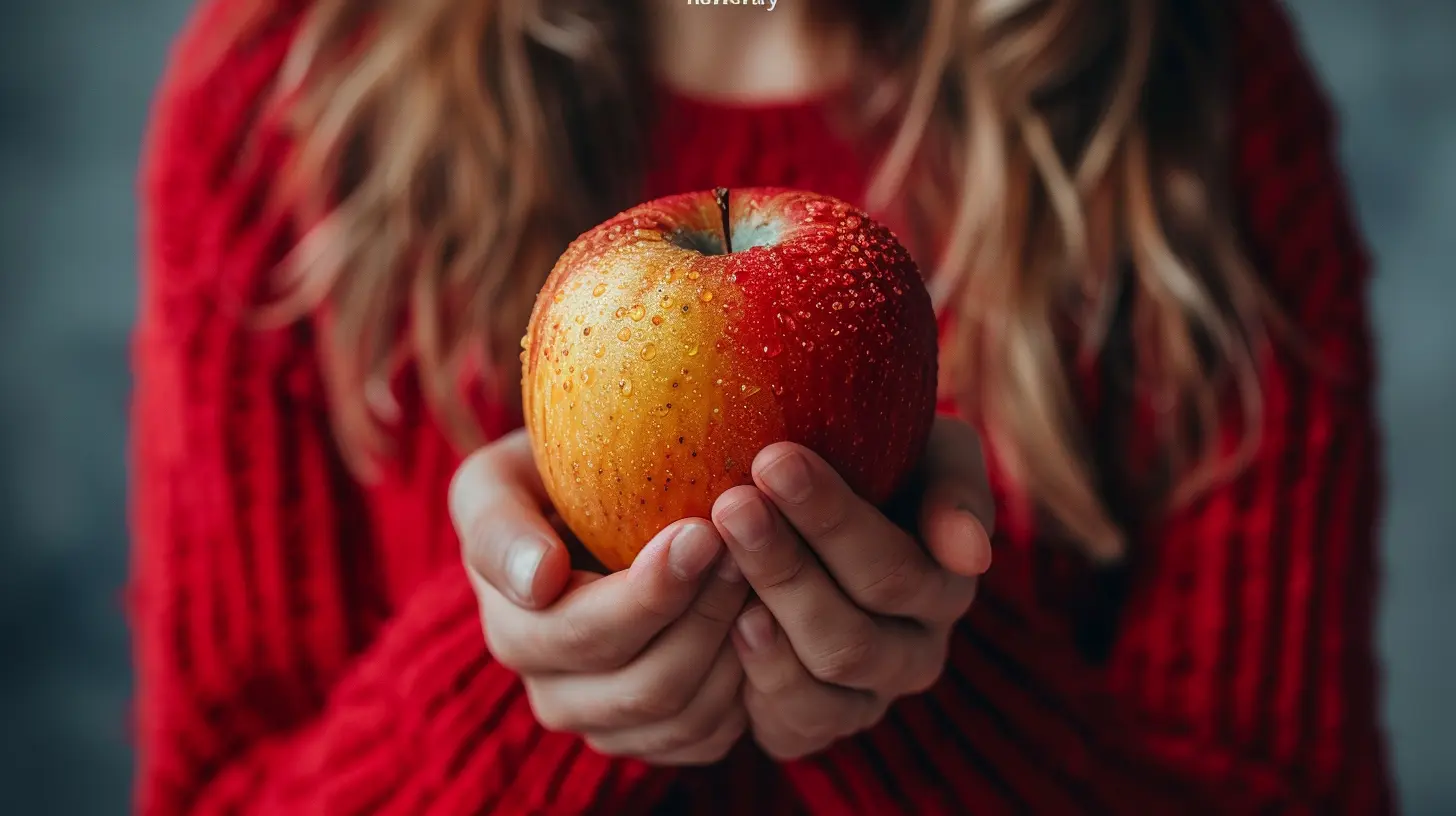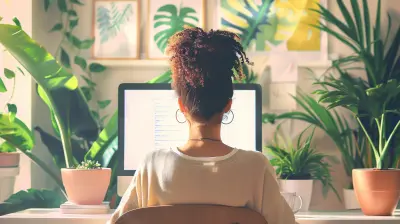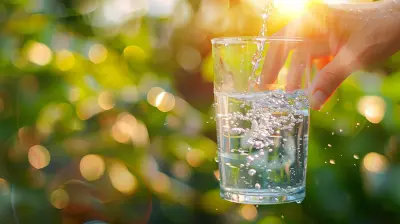How to Make Gratitude a Daily Habit to Boost Your Wellbeing
30 September 2025
Let’s admit it—life gets messy. Between juggling work, family, bills, and endless notifications, it’s easy to overlook the little things that actually make life worth living. But here’s a simple truth: gratitude can change everything. Yep, just that one word—gratitude—has the power to shift your mindset, improve your health, and boost your overall wellbeing.
Now, before you brush this off as fluffy advice, hear me out. Gratitude isn't just about saying “thanks” to someone for holding the door. It’s a mindset, a daily practice, and a powerful tool to rewire your brain for more joy and less stress. So, let’s dive deep into how to make gratitude a daily habit and watch your wellbeing soar.
Why Gratitude Matters More Than You Think
Imagine gratitude as a super vitamin for your brain. Studies have shown that people who regularly practice gratitude experience more positive emotions, sleep better, and even have stronger immune systems. Still not convinced? Being thankful can also reduce anxiety and depression, increase resilience, and strengthen relationships. That’s a whole lot of good from something so simple.But here's the catch—we often forget to feel grateful. Why? Because we tend to focus on what’s wrong instead of what’s right. Our brains are wired for survival, which means we naturally zero in on problems and dangers. Gratitude flips that script.
What Happens to Your Brain on Gratitude?
Let’s geek out just a bit—don’t worry, no complex science talk here. When you feel grateful, your brain releases feel-good chemicals like dopamine and serotonin. These neurotransmitters are like the body’s natural happy pills. Gratitude literally lights up the brain’s reward system, making you feel good now and encouraging you to keep practicing it. It’s like the emotional version of brushing your teeth—do it daily and you’ll thank yourself later.
Step 1: Start Small with a Gratitude Journal
Okay, let’s get practical. The first and easiest tip? Grab a notebook and start a gratitude journal. No, we’re not talking about writing essays here. Just jot down 3–5 things you're grateful for every day.It could be as simple as:
- The smell of coffee in the morning
- A smile from a stranger
- That song that came on at just the right time
Simple stuff, right? But here’s the kicker—it works. Writing things down makes your gratitude real. It pulls those warm, fuzzy feelings out of your mind and puts them on paper, where they belong.
📝 Pro Tip: Keep your journal by your bed and make it the last thing you do before sleep or the first thing in the morning. Bookending your day with gratitude is like emotional armor.
Step 2: Turn Gratitude into a Cue-Based Habit
Here’s something cool from behavior science: habits stick when they’re tied to cues. So why not pair gratitude with something you already do every day?Try this:
- Say one thing you’re grateful for while brushing your teeth
- Think of three good things before eating lunch
- End every shower with a “thank-you” to your body
It’s like piggybacking a new habit onto an old one. Sneaky, right? But it works because it removes friction. No sticky notes or reminders—just natural gratitude baked into your routine.
Step 3: Share the Love—Literally
Gratitude doesn’t have to be a solo mission. In fact, it’s even more powerful when shared. Ever gotten a heartfelt “thank you” that made your whole day? You can give that to someone else, every single day.Try these:
- Shoot a quick text to a friend saying thanks for being awesome
- Compliment a co-worker for something they did well
- Leave a thank-you note for your barista
Small acts, big impact. When gratitude flows outwards, it not only makes others feel good—but it locks in those positive vibes for you too.
Step 4: Turn Complaints into Gratitude (Yes, Really)
We all complain. It’s human. But what if you could flip the script in real time?Next time you find yourself groaning about traffic, try this: “I’m grateful I have a car to sit in.” Or if you’re stressed about your job, remind yourself: “I’m grateful I have an income to support myself.”
Does this mean ignoring real problems? Nope. It just means shifting perspective. Gratitude doesn’t erase struggles—it helps you face them with a better mindset.
Step 5: Make It Visual
Sometimes seeing is believing. So, why not make gratitude visible?Try:
- A gratitude jar: Write one thing you're grateful for on a sticky note each day, drop it in a jar, and read them at the end of the month. Instant mood booster!
- Gratitude board: Pin photos, notes, or drawings of things you love.
- Digital diary: Take a photo every day of something that brings you joy and save it in a "Gratitude Album" on your phone.
Visual reminders work like emotional highlighters. You’re basically telling your brain, “Hey, this right here—this is the good stuff.”
Step 6: Practice Mindful Gratitude
Most of the time, we rush through life like we’re on a treadmill with no pause button. Gratitude can help you slow down and savor the moment.Here’s a quick exercise:
Next time you drink water, stop and really notice it. Think about how amazing it is that clean water flows right from your tap. Not everyone is that lucky. That’s something to be thankful for, right?
The point is, gratitude paired with mindfulness deepens your awareness and appreciation in real-time. And it’s not complicated. Just tune in instead of tuning out.
Step 7: Be Consistent, Not Perfect
You might forget a day. You might have a rough week. That’s okay. This isn’t about perfection—it’s about progress.Habits take time. Growing daily gratitude is like planting a tiny seed. Water it with attention, care, and repetition. Some days will feel easier than others. But with consistency, that seed grows into a forest of positivity that can protect your mental and emotional health for years to come.
How Long Does It Take to Make Gratitude a Habit?
Here’s the million-dollar question. Most experts say it takes around 21 to 66 days to form a new habit. But let’s not get obsessed with counting days. Instead, focus on showing up consistently.Think of it like going to the gym. You don’t notice muscles after one workout. But show up every day for a few weeks? You’ll start to see—and feel—the difference.
Real Talk: What If I Don’t Feel Grateful?
It happens to all of us. Some days, life throws you into a storm and gratitude feels out of reach. And that’s okay. The point isn’t to fake it. It’s to stretch your focus, even just an inch, toward something good—no matter how small.Here’s a quick hack: Think of someone who has it worse than you—not to minimize your pain, but to shift your lens. Gratitude isn’t about ignoring hardship. It’s about adding balance to your perspective.
Daily Gratitude Ideas to Get You Started
Need a jumpstart? Here are some gratitude prompts you can use anytime:- What made me smile today?
- Who’s someone I really appreciate and why?
- What’s something I have today that I once wished for?
- What’s a recent win (big or small)?
- What’s something beautiful I saw today?
Use these in your journal, in your head, or in conversations with loved ones. The more you practice, the easier it gets. Like flexing a muscle you didn’t know you had.
Wrapping It Up: Your Daily Dose of Gratitude
So here’s the bottom line: Gratitude isn’t a personality trait—it’s a choice. A practice. A habit you cultivate like brushing your teeth or making your bed. And the more you do it, the more natural it becomes.Start small. Stack it onto your routine. Share it with others. Forgive yourself when you forget. And remember, you don’t need a perfect life to be grateful—you just need to notice the good hiding in plain sight.
Because let’s face it: happiness isn’t about having more. It’s about noticing more of what you already have. And that, my friend, starts with one simple, daily “thank you.
all images in this post were generated using AI tools
Category:
Healthy HabitsAuthor:

Jackson Mahoney
Discussion
rate this article
1 comments
Fennec Roth
What a delightful read! Embracing gratitude truly transforms our daily lives. Incorporating this simple habit can lift our spirits and enhance our wellbeing in incredible ways. Thank you for sharing such uplifting insights—let's make gratitude a joyful part of every day! 🌟😊
October 12, 2025 at 3:45 PM

Jackson Mahoney
Thank you for your kind words! I'm so glad you found it uplifting—embracing gratitude really can make a world of difference! 🌟


